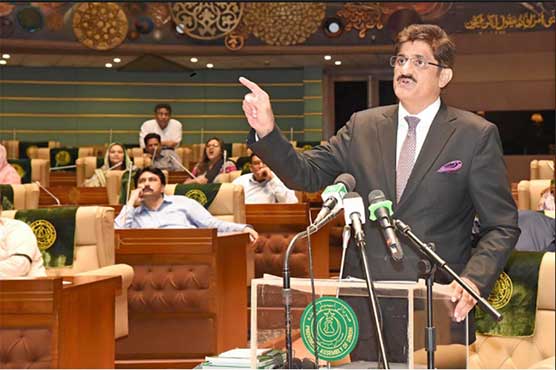By Muhammad Mohsin Iqbal
In the rich tapestry of Pakistani politics, the contributions of women have been profound, trans formative, and often underestimated. From the early struggles for independence to the corridors of power today, women have consistently played pivotal roles in shaping the nation’s destiny. From the pioneering spirit of Mohatrama Fatima Jinnah to the groundbreaking leadership of Mohtarma Benazir Bhutto and the emerging voices like Dr. Fehmida Mirza and Mariyum Nawaz, these women have continually defied odds, shattered stereotypes, and redefined the political landscape of Pakistan.
Mohatrama Fatima Jinnah, fondly remembered as the “Mother of the Nation,” stood as a symbol of courage and resilience during Pakistan’s formative years. Her role in the struggle for independence alongside her brother, Muhammad Ali Jinnah, was pivotal. Beyond her familial connection, Fatima Jinnah emerged as a formidable political figure in her own right, advocating for the rights of women and marginalized communities.
Mohatrama Benazir Bhutto, the trailblazing daughter of Zulfiqar Ali Bhutto, emerged as Pakistan’s first female Prime Minister, etching her name in the annals of history.Her ascent to power as Prime Minister not once, but twice, shattered glass ceilings and inspired women worldwide.With her charismatic leadership and bold vision, she challenged societal norms and advocated for women’s empowerment, leaving an indelible mark on Pakistani politics. Benazir Bhutto’s tenure was marked by her unwavering commitment to democracy, social justice, and gender equality, despite facing immense challenges and tragic setbacks.
Dr. Fehmida Mirza’s ascension as the first female Speaker of the National Assembly exemplifies the progressive strides made towards gender inclusivity in Pakistan’s political sphere.Her tenure was characterized by a dedication to upholding parliamentary democracy and fostering inclusivity within the political sphere. Fehmida Mirza’s leadership exemplified integrity and impartiality, setting new standards for parliamentary governance.
First women Deputy Speaker National Assembly Mrs. Ashraf Khatoon Abbasi’s emergence as a prominent political figure reflects the evolving landscape of women’s participation in Pakistani politics. Her dedication to grassroots activism and community development serves as a beacon of hope for marginalized voices across the nation.
Begum Kulsoom Nawaz, revered for her grace and resilience, played a pivotal role in Pakistan’s political saga alongside her husband, Nawaz Sharif. Her dignified demeanor and unwavering support underscored the significance of women as pillars of strength in the face of adversity.
Begum Nasim Wali Khan was the former provincial president and parliamentary leader of the Awami National Party in Provincial Assembly of Khyber-Pakhtunkhwa. She was one of the main leaders of the Pakistan National Alliance and made history in 1977 as the first woman elected from a Khyber-Pakhtunkhwa province general seat in the 1977 election.
Dr. Shireen Mazari, renowned for her advocacy in human rights and foreign affairs, stands as a formidable figure in Pakistan’s political arena. As the Minister for Human Rights, her unwavering commitment to social justice and equality embodies the spirit of resilience and determination.
Zubaida Jalal, a prominent political figure, has made significant strides as the first female Federal Education Minister from Balochistan. Her dedication and leadership have been instrumental in shaping educational policies and opportunities in the region.
Sherry Rehman, Pakistan’s former Ambassador to the United States and a prominent parliamentarian, has been a vocal advocate for democracy and women’s rights. Her diplomatic acumen and steadfast dedication to her principles have earned her admiration both domestically and internationally.
Hina Rabbani Khar, the youngest and first female Foreign Minister of Pakistan, brought a fresh perspective to diplomacy and international relations.Her tenure symbolized a progressive shift in Pakistan’s diplomatic landscape, highlighting the pivotal role women play in shaping foreign policy.
Dr. Yasmin Rashid and Dr. Azra Pechuho, both distinguished medical professionals turned politicians, have made significant contributions to public health and governance. Their expertise and dedication have been instrumental in addressing healthcare challenges and advancing socio-economic development in Pakistan.
In the contemporary political landscape, Mariyum Nawaz emerges as a dynamic force. She elected as the first women Chief Minster in Punjab. As the newly elected Chief Minister of Punjab, her elevation to such a position of prominence underscores the evolving role of women in Pakistani politics. Her journey reflects the shifting attitudes towards gender equality and the increasing recognition of women’s capabilities in leadership roles.As she assumes this pivotal role, she carries forward the legacy of her family with a renewed commitment to serve the people of Punjab with integrity and diligence.
The legacy of these trailblazing women serves as a beacon of hope and inspiration for all who aspire to participate in the political process. Their courage, resilience, and unwavering commitment to the betterment of society embody the spirit of democracy and serve as a reminder of the transformative power of women in politics.
Collectively, these women exemplify the resilience, tenacity, and unwavering resolve of Pakistani women in navigating the complexities of politics. Their contributions have not only reshaped the political landscape but also paved the way for future generations to aspire towards greater representation and inclusivity in governance. As Pakistan continues its journey towards progress and prosperity, the invaluable role of women in shaping its destiny remains indispensable.




